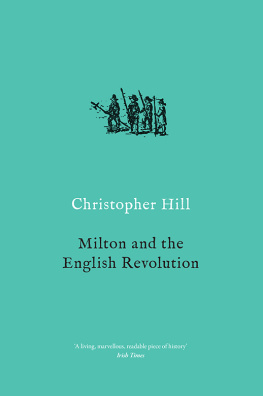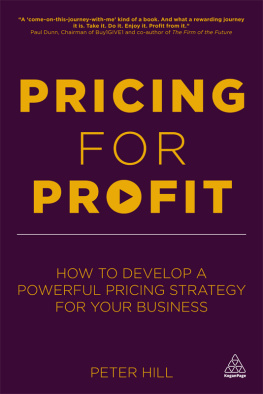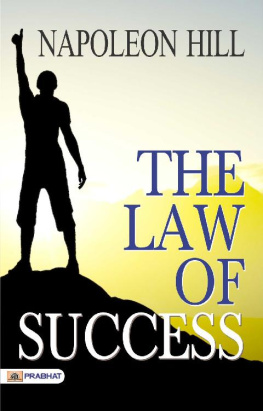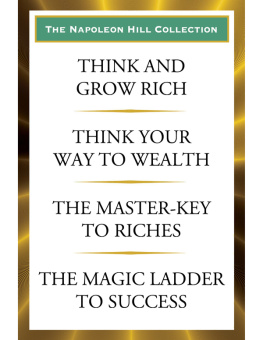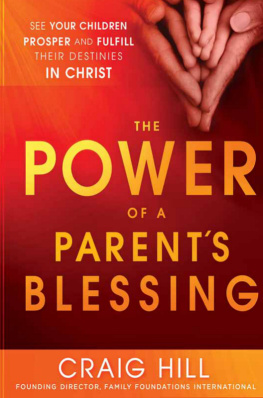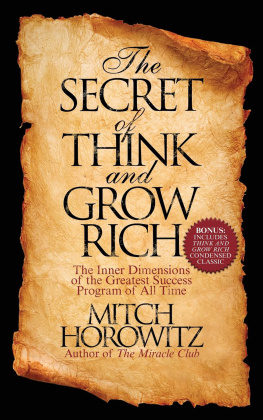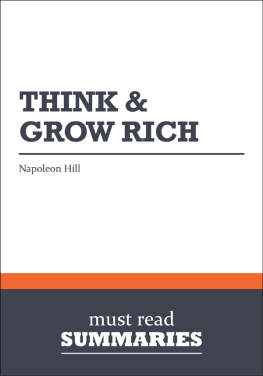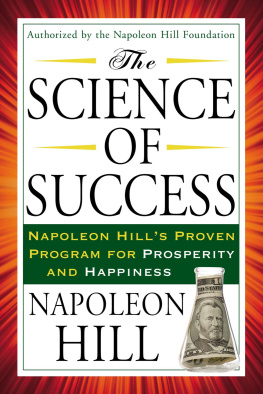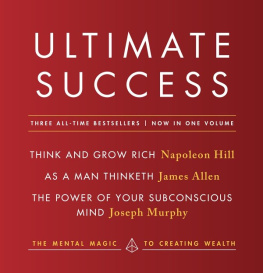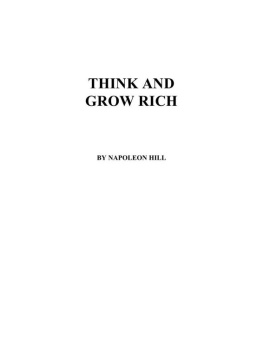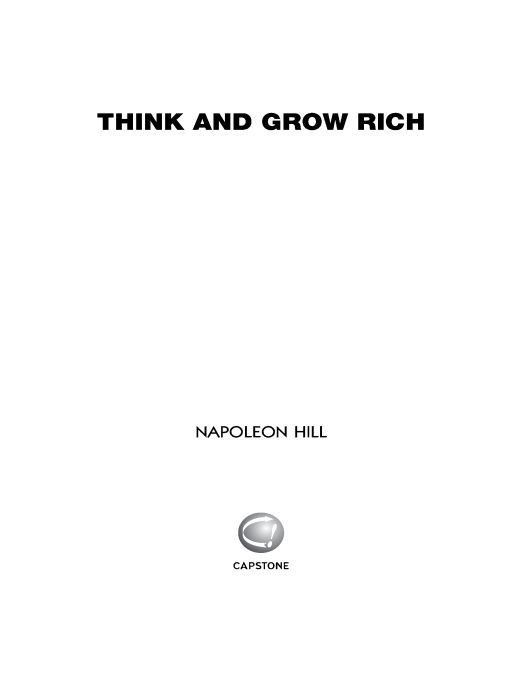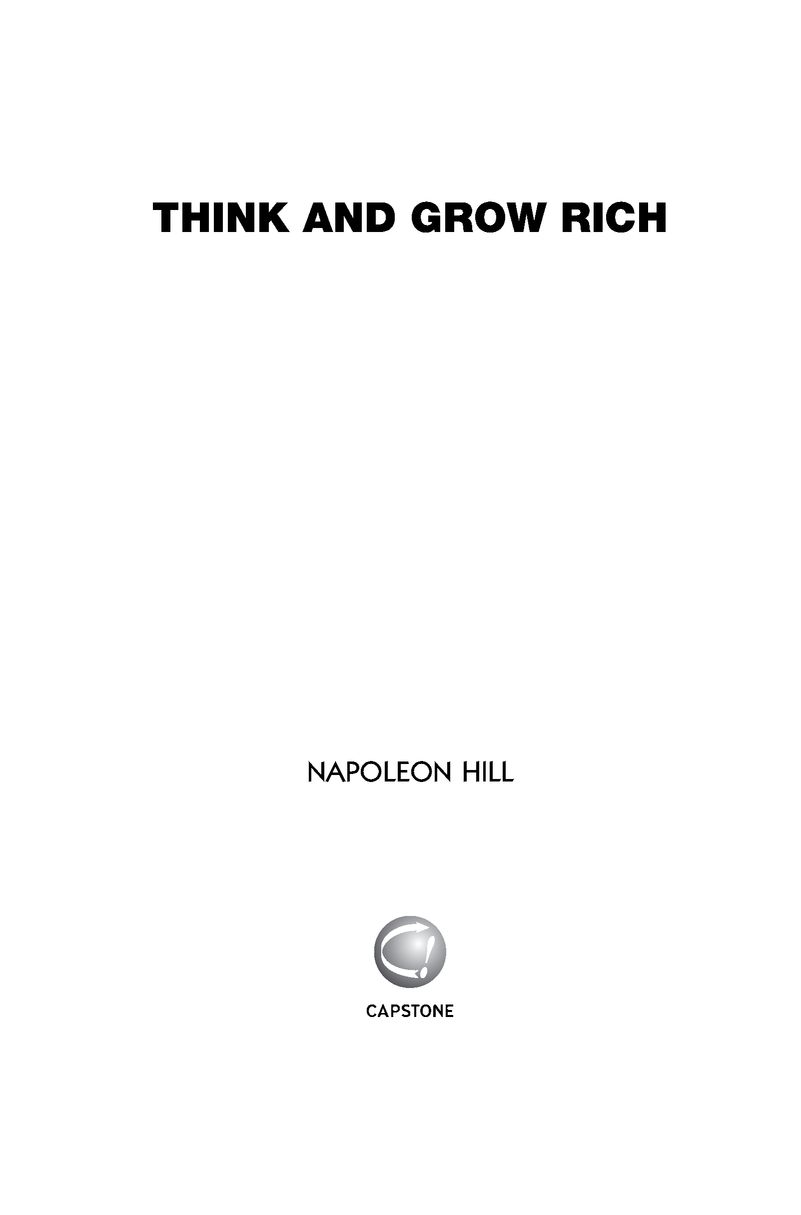Table of Contents
AN INTRODUCTION
BY TOM BUTLER-BOWDON
AMERICA in 1908 was an exciting place. Henry Ford had ushered in the automobile age with the production of the first Model Ts, the Wright brothers were doing the same for flight when they kept a craft in the air for two hours, and the motion picture industry was just getting started. The country was in a short, sharp recession following a financial panic but would soon recover. There was much optimism.
In the Autumn of that year, young reporter Napoleon Hill was asked by a magazine to write a series on major business figures, with his first subject the great steel magnate Andrew Carnegie. Now the richest person in America after the sale of his massive interests, Carnegie was in the process of giving away his fortune in historys greatest act of philanthropy.
A GOLDEN OPPORTUNITY
When a nervous Hill walked into the grand library of Carnegies 5th Avenue New York mansion, he expected the interview to last for an hour or two. Carnegie asked him to stay for the weekend.
The wily Scot, who had come to America with nothing, had grown excited as he expounded on the idea that there should be a concrete philosophy of success for the average person, drawn from the experience of great achievers. When Carnegie suddenly challenged him to spend the next 20 years formularising this philosophy, Hill was taken aback. But perhaps imagining a secure career in fascinating research bankrolled by a billionaire, Hill (according to his unpublished autobiography) took only 29 seconds to say Yes.
It was a golden opportunity, but in some ways Hill deserved it. In his 24 years he had notched up some remarkable achievements. Born in 1883, he had been one of the wild boys of Wise County in the foothills of the Appalachian mountains, and after his mothers death, when he was only 9 years old, the future did not look bright for a delinquent with little wish for self-improvement. Yet when his father James remarried, Hills new stepmother proved to be a godsend. She bought him a typewriter and persuaded him to use it, promising that writing skills would one day make him rich, respected and famous.
After a hated, physically exhausting stint in a coalmine he began to see the value of using his mind to progress in life, and at 15 was already contributing stories for local newspapers. Then followed business college, the management of a mine employing 350 men, a brief period in law school and, after proving to be an extremely effective salesman, an appointment as partner in a lumber company - an impressive resume indeed for someone raised in the cultural and material poverty of rural Virginia. It was after the stock market plunge of 1907, and the subsequent bankruptcy of the lumber firm, that Hill again found himself working as a reporter.
The Carnegie project may have seemed to Hill like his great calling, but there was a shock to come. Despite his vast wealth, Carnegie would not fund the project, noting that Hills chief reward would be the satisfaction of knowing that he would change many lives, and that the results of his research would, in any case, bring fame and riches. Hills disappointment was mitigated to some extent when, to get the project off to a good start, the steel king offered to provide letters of introduction to some famous friends including Henry Ford.
SCHOLAR OF SUCCESS
Carnegies estimate of 20 years to complete the great project proved remarkably accurate.
It was not until 1928, with Hill now in his mid-40s, that the results of his research were published. Law of Success, covering eight volumes and 1500 pages, elucidated 17 principles of achievement gleaned from Hills interviews with, and analysis of, 500 of Americas most successful people. From the inventors Thomas Edison and Alexander Graham Bell to retail titans such as F.W. Woolworth, George Eastman and King Gillette, the list was an impressive roll call of the rich and famous of the day and even included presidents Theodore Roosevelt and Howard Taft.
The intervening years had not been easy for Hill. To support himself and his young family he had sold cars, started a college teaching other car salesman, worked as assistant to the chief counsel of a gas company, held a job promoting courses at an extension university, invested in and ran a candy company, and sold by-correspondence sales courses.
In the year Carnegie died, 1919, Hills career took an upward swing when he found backers for a new national magazine, Hills Golden Rule. It did well, and a couple of years later he launched Napoleon HillsMagazine, A national monthly magazine of business philosophy. Coupled with lectures in cities across the nation, Hill was carving out a reputation as Americas scholar of success.
Despite its relatively high cost, the uniqueness of Law of Success led to high sales. The proceeds, in addition to his lecturing fees, enabled Hill to acquire a large estate in the Catskill mountains. Hill had in mind to create the first Success University on the site, but also have it as a family home. His earnest pursuit of riches and recognition had meant time away from his wife Florence and their three sons, who had remained in Virginia waiting on infrequent visits and erratic cheques. As the family enjoyed their new surrounds, it seemed to vindicate all the years of uncertainty.
BIRTH OF A PHENOMENON
Unfortunately, as the American economy fell into Depression the following year sales of the book slowed to a trickle. The estate was foreclosed on and Hill found himself again starting from scratch. It was a blow to the family, and before the Depression was over Hill and Florence had divorced.
Another in the same situation might have railed against Fate, but one of Hills catchphrases was Every failure carries with it the seed of an equivalent or greater reward.
Duly, in 1933, just before he turned 50, Hill received a phone call from the Roosevelt administration. Would he be enlisted to work as an adviser, speechwriter and public relations man for the National Recovery Administration in its war against fear? Hill leapt at the opportunity, and believing the job was his patriotic duty, refused a salary. He stayed for two years, and claims to have had significant input into FDRs famous fireside chats broadcast to millions of Americans.
During this period he also found time to draft a new book, The 13 Steps to Riches, which drew on the lessons of Law of Success. As demand for his lectures increased, the book was put on the backburner. Yet Hill was far from being out of the financial woods. In fact, in 1937 he had to borrow money from his son Blair, who was living in New York, and camp out at his apartment for several months. It was here that Hill revisited his manuscript, but feeling that it lacked something (to be specific, transmuted sex emotion, see below), he proceeded to rewrite it in a more dynamic way.
The manuscript was submitted it to his publisher, Albert Lewis Pelton, who apparently wished to call the book
Use Your Noodle to Win More Boodle. Luckily, the full title became:
Think and Grow Rich; Teaching, for the first time, the famous Andrew Carnegie formula for money-making, based upon the thirteen proven steps to riches
Priced at $2.50, Pelton optimistically ordered a print run of 5,000 copies. These sold in just three weeks. There would be countless reprints, and in the following few years the book would sell a million copies. Hill moved to an ostentatious home in Florida with his new wife Rosa, whom he had met at a lecture, and bought a Rolls-Royce.


